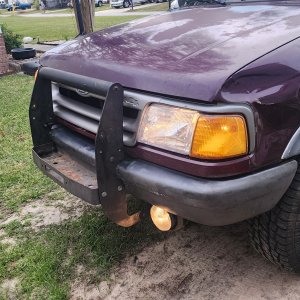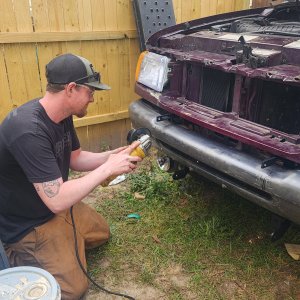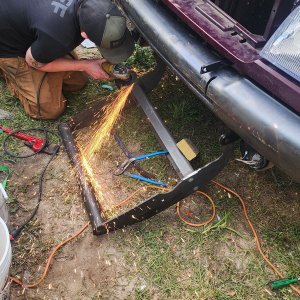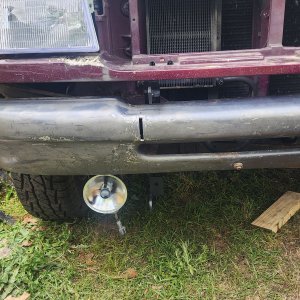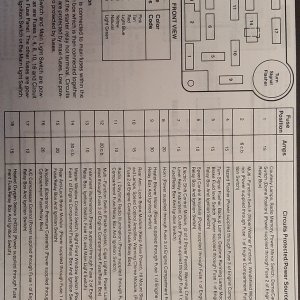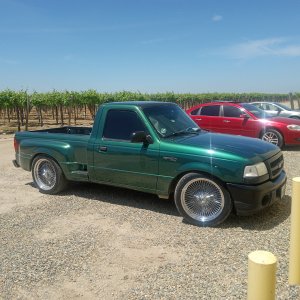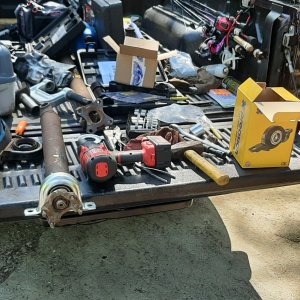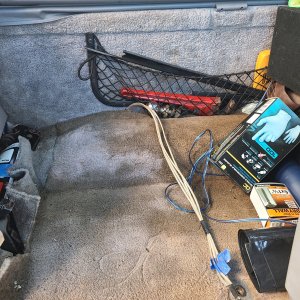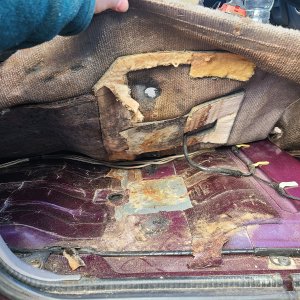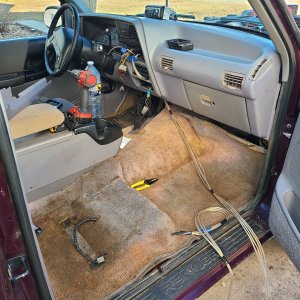The exhaust valve seat recession goes back as far as '99/'00 3.0l engines.
You get a lower compression in one or two cylinders which can come and go for a bit and then just come and no go, lol, along with misfire codes.
Ford redesigned the 3.0l heads with 7mm valves in '99, replacing the 8mm valve heads used since '86.
In '99 the block was also changed to accept longer head bolts, '98 and earlier had 4.3", '99 and up 5.5" bolts
The '99 head design is when the seat "flaw" first started to show up, but not right away.
It is, of course, is not a 100% issue, all '99 or later 3.0l heads won't have exhaust seat recession.
Never have seen a % report about how many 3.0ls have had this issue , or even a definitive cause for it, "design issue" covers alot of ground.
This TSB covers this problem and has the part number of replacement head.
It only refers to '04-'06 3.0ls, but any dealer mechanic will tell you it started with '99 head changes.
The '04-'06 years could simply be because more 3.0ls were put into Rangers in those years, the 4.0l SOHC engines had a bad rep at that time because of the timing chain issues.
TSB 05-26-3
FORD: 2004-2006 Ranger
ISSUE
Some 2004-2006 Rangers 3.0L-2V "Vulcan"vehicles may exhibit:
- Malfunction indicator lamp (MIL) on with diagnostic trouble codes (DTCs) P0300-P0306 and P0316
- Rough running at various RPM
- Rough idle
- Misfire
ACTION
This may be due to an engine exhaust valve seat recession causing a loss of compression. Refer to the following Service Procedure to diagnose exhaust valve seat recession.
SERVICE PROCEDURE
1. Perform a power balance rest to clarify if a cylinder is misfiring. Identify and keep record of any cylinder that has a concern.
2. Perform a manual compression test with the spark plugs removed to locate any cylinder that may have low compression. Refer to the appropriate Workshop Manual, Engine System, General Information, 303-00.
3. If no low compression is found per shop manual instructions, proceed with normal misfire diagnostics per the Powertrain Controls/Emissions Diagnosis (PC/ED) Manual for the appropriate model year.
4. If low compression is found and it is a cylinder that had a misfire on power balance, perform a leakdown test to determine the source of leakage that may be causing the low compression. Refer to the appropriate Workshop Manual, Engine System, General Information, 303-00.
5. If low compression is found in a cylinder that did not have a misfire detected then proceed with normal base engine diagnostics per the Workshop Manual, Engine System, General Information, 303-00.6.
If the exhaust valve is identified as the source, replace both cylinder heads with the newly released service cylinder heads. Refer to the appropriate Workshop Manual, Section 301-01A.
PART NUMBER / PART NAME
6U7Z-6049-A / Cylinder Head Assembly
2F1Z-6079-BB / Upper Gasket Kit
F8 DZ-6065-AA / Cylinder Head Bolts
F7DZ-9448-BB / Engine Exhaust Gasket
4F1Z-658-AA / Valve Cover Gasket
F6DZ-9439-C / Side Gasket
F2DZ-9A425-AA / China Gasket (Front)
F3DZ-9A424-BA / China Gasket (Rear)
4L5Z-9H486-AA / Gasket-Upper Intake Manifold
Having to get new heads is of course a pretty big expense, but I wouldn't lose any sleep over it, there isn't anything you can do to prevent it, and there are no numbers to check to see if your 3.0l is more prone to having this issue.
I would "assume" from the TSB that '07 and up 3.0l engines would be less prone to this, but can't say for sure.
3.0l heads like to crack when overheated, not as much as the 4.0l OHV heads but a close second, lol.
And if you should start getting misfire codes there are more likely issues that cause it than valve seat recession.
Good read here on the 3.0l and changes that were made over the years:
http://www.therangerstation.com/tech_library/3_0-build.shtml


